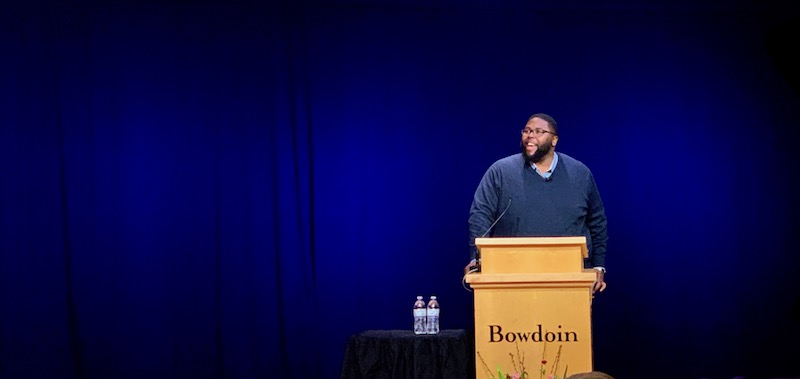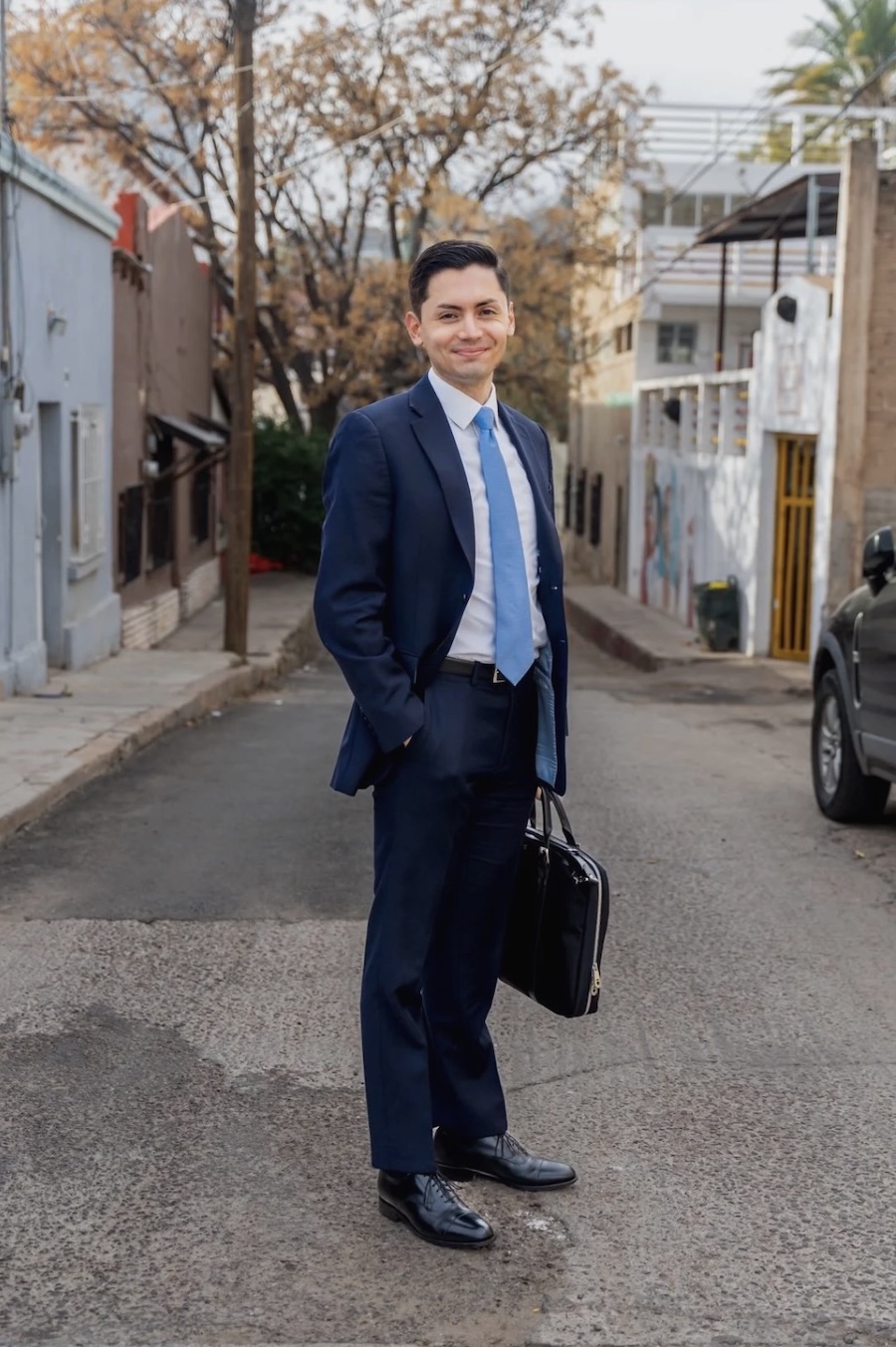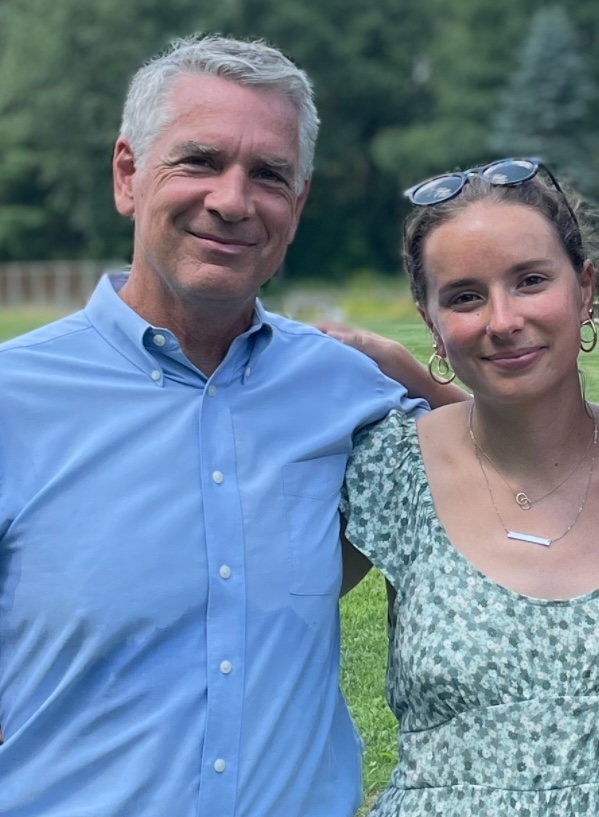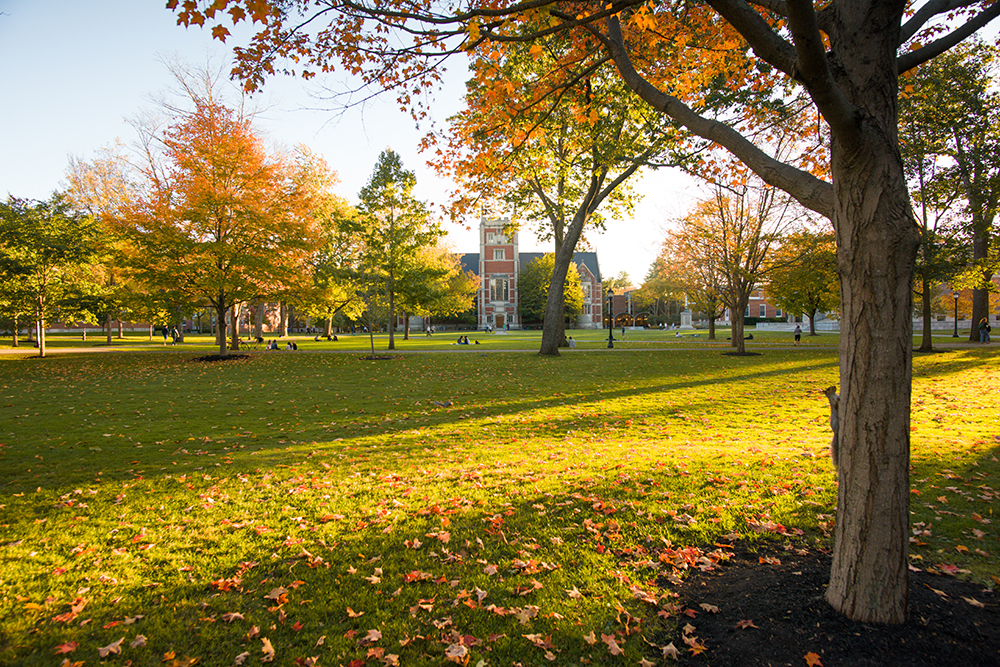Anthony Jack: College for the 'Privileged Poor'
By Julius Long ’20
His lecture, based on his 2019 book, The Privileged Poor: How Elite Colleges are Failing Poor Students, examined the double disadvantage that poor students, particularly those with little experience at elite institutions, are subjected to when they arrive on campuses like Bowdoin’s.
Jack, a graduate of Amherst College and Harvard University, began by thanking the crowd for a much more welcoming reception compared to his last visit in which he lined up to play Bowdoin in football in 2003. But right after that, on a more serious note, he gave a special thank you to the College’s unsung heroes—the janitor’s, the security guards, the groundskeepers, the cooks, the secretaries, “whose work may be invisible to some, but that doesn’t make it any less important.”
Jack’s scholarship has peeled back the guise of growing access to elite schools, revealing a highly consequential miscalculation of the sort of responsibilities that diversity demands. The Privileged Poor intertwines Jack’s primary account as a low-income, first-generation college student with that of 103 black, white, and Latin American undergraduates at an elite, northeastern university, pseudonymously referred to as Renowned University in the book.
Jack recalled his own college peers at Amherst—even those representing the new diversity on campus—telling stories of trips abroad, private jets, and second homes. During undergraduate orientation he began to ask, “Where are all the other poor black folk?” Where were the “at-risk” students experiencing culture shock and isolation synonymous with the traditional first-generation narrative?
As Jack began to discover these students and forge relationships with those who shared similar beginnings to him, he came to understand that the vacation homes his peers ventured to were not always their own, but rather those of their wealthy peers from elite high schools.
What he discovered at Amherst and again in his research, was that elite institutions were getting much of their new diversity from old sources—elite private and preparatory schools—breeding a distinct group that he calls “the privileged poor.”
Jack compares the experiences of the privileged poor to those of students from equally disadvantaged backgrounds but who enter college from local and often resource-stressed public schools. He refers to these students as “the doubly disadvantaged.” His research reveals a gap in cultural capital between the privileged poor—those well-versed in the hidden language of office hours and how to build relationships with faculty—and the doubly disadvantaged, who only know environments in which help is seldom offered or available.
“The reality is that undergraduates from America’s forgotten neighborhoods and ignored schools are truly disadvantaged if we continue to privilege privilege,” Jack said.
In a direct address to the Bowdoin College officials in attendance, Jack said, “Those for whom the college environment is new should not be the only ones forced to change, to grow, or to adapt. To overlook the diversity of experiences among first-generation and lower income college students is to base your policy on a partial picture.”
He suggested that faculty clearly explain to all their students at the beginning of the term what office hours are, and why every student should take advantage of them. Colleges should ensure that students are subjected to food insecurity when dining halls close over breaks.
Jack reiterated his message the following day as he met with Bowdoin faculty and administrators to help guide the institution from access to inclusion. “Students’ experiences underscore how access and inclusion are two separate institutional mandates,” he told them. In a closing message to the students present, Jack declared, “Your college is your home. You are its citizenry. Demand as much of Bowdoin as Bowdoin demands of you. Be unapologetic, be bold, be you.”



